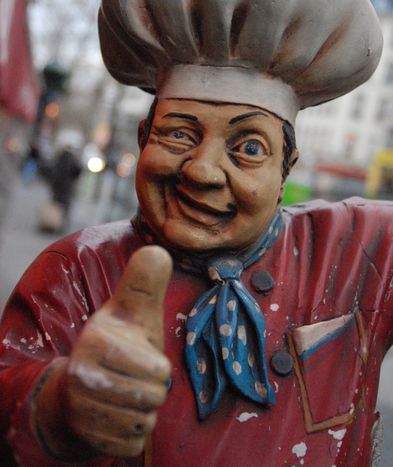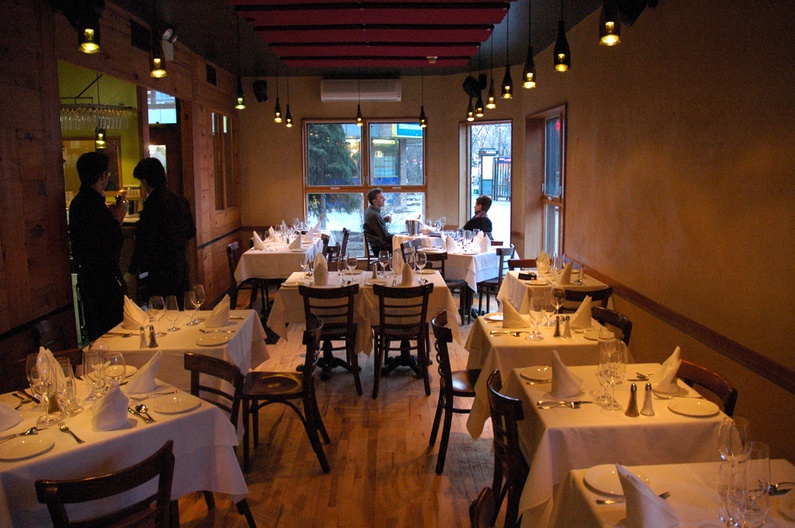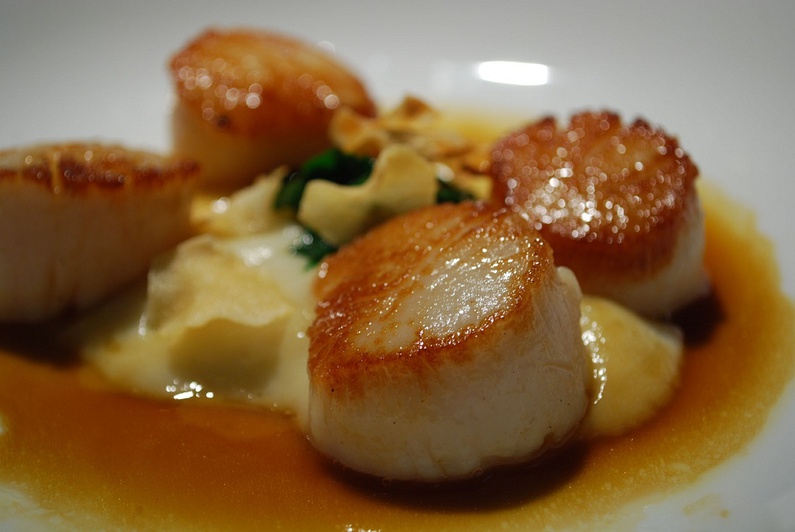
THE DECLINE OF FRENCH FOOD
Published on
With rising food prices and the growing popularity of frozen food, is French food, once the most famous cuisine, in decline?
Being a foreigner in France, I have friends and family who visit Paris for the first time and are disappointed after dining in the capital due to their somewhat high expectations of French cuisine. Is it because they lack a French palate? It’s generally accepted that food enthusiasts find exceptional places to fit their gourmet appetite, but how about if a moderate meal at an average restaurant in the world’s (alleged) culinary capital is just not cutting it?
The problem is, even many native French people I spoke to would express the same disappointment.
One avid French restaurant goer, France Lys, says she is dissatisfied at least half of the time when she dines out.
What’s going on here? I thought the French invented the word, “gourmet”? France still is the culinary capital of the world, right?
Or at least it was.
industrial quality for gourmet prices
With high labour and restaurant taxes stacked on top of an economic crisis, restauranteurs are facing issues to provide fresh, quality meals at a competitive price. For an average paying customer, roughly 15 to 20 euros a meal, this commonly translates to frozen products on your plate.
Synhorcat, a national union of hoteliers, restaurants, cafes, and caterers, released a survey showing 31% of restaurants use industrially made meals — a percentage which is alleged to be higher by restauranteurs who prepare fresh meals made from scratch.
 Michael Steinberger, author of Au Revoir to All of That: Food, Wine, and the End of France says a weak economy is not good for food and gastronomy.
Michael Steinberger, author of Au Revoir to All of That: Food, Wine, and the End of France says a weak economy is not good for food and gastronomy.
“It’s difficult for small restaurants to make a profit. The government makes it difficult, so there’s a lot of incentives for chefs and restaurant owners to really keep their costs down and that means maybe not the best products and best people to cook it...that’s had a bad affect on the food in lots of restaurants. [The government] makes it very difficult to run them profitably.”
Since 2000, labour taxes rose 40% and restaurants face a 10% tax, a 3% hike since last year. This is why restaurants opt for frozen or industrially made food.
Owner of a restaurant in the 16th district at La Muette in Paris, Michel Geffroy, keeps his bakery-cafe menu simple but still uses a few frozen items like green beans and French fries which saves a lot of work in the end. “If I bought all my products fresh, I’d have to hire another staff member,” he tells me.
It would cost Geffroy approximately 3,000 euros per month including labour taxes to hire another worker at his restaurant which is most busy during lunch hour.
Though restauranteurs like Geffroy are squeezing their budget to make a profit where the margin is already small, he believes France still dominants the fine dining playing field despite the inertia of the country’s gastronomic scene due to the economic situation. Steinberger says it’s hard to revolutionise during tough times.
the rise of the rest
“A lot of people who are passionate about food concluded that for the last 15 years France has not been the most interesting place to eat and [now] it’s places like Spain, Italy, Japan — and France has become stale. When times are bad, people want comfort food and not very experimental food.”
With the fate of French food at high stakes, restauranteurs and politicians who fear of losing the country’s culinary reputation are fighting to keep it alive and distinguished by a consumer protection bill that would require a 'fait maison', or homemade logo, which was passed at the National Assembly last year and is coming soon to restaurants- yet it is still unclear how the law will be implemented.
Restauranteurs, like Geffroy, who are stuck between delivering high quality with very little revenue and buying frozen products to save time and money, are put in a difficult situation to find a compromise between the two and usually end up with unsatisfied customers.
 Lys, a conscious consumer able to distinguish industrially made products from fresh products, believes a gastronomic experience consists of a small menu of high quality.
Lys, a conscious consumer able to distinguish industrially made products from fresh products, believes a gastronomic experience consists of a small menu of high quality.
“[A gastronomic meal] is when the ingredients are simple but the way it’s cooked is elaborate, the atmosphere [of the restaurant] well situated, servers knowing why and how the food is made, good presentation, and if it was homemade.”
Though the French have not done enough to keep the culinary scene vital and dynamic, Steinberger says the creativity has not completely disappeared with the bistronomie movement intact and a very recent movement of foreign chefs cooking French food with a foreign flare.
“The bistronomie movement in Paris was a pretty good thing. These are really talented chefs who have decided that they don’t want to pursue Michelin Stars, people like Yves Camdeborde link and so forth. You go, eat this terrific meal, very casual setting, excellent meal for 35 to 45 euros per person. These are people who could be Michelin Star chefs but they decided they could do something different.”
Over the last ten years, the bistronomie movement has brought something different to the table [pun intended] but the latest has been a group of young foreign chefs — such as Daniel Rose and James Henry of Bones — who are bringing a new evolution to traditional French cuisine.
“The fact that foreign chefs are in France cooking really good French food in Paris and are being accepted by the French is a great sign. There is a new generation of diners who are very open-minded and receptive-15 years ago, there’s no way that some of these chefs could have been able to open restaurants in Paris and be accepted,” says Steinberger.



